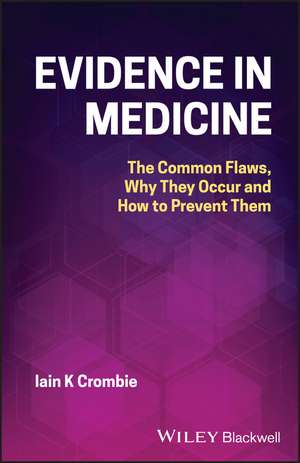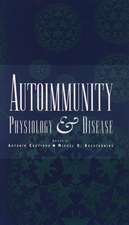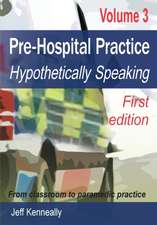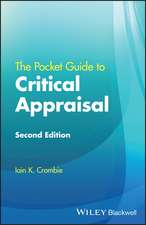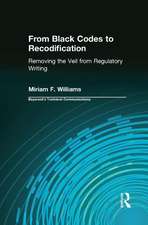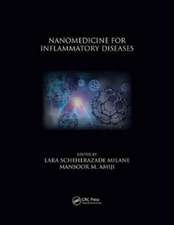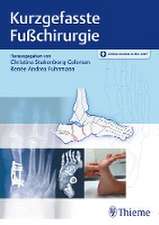Evidence in Medicine – The Common Flaws, Why They Occur and How to Prevent Them
Autor I Crombieen Limba Engleză Paperback – 12 mai 2021
Preț: 304.46 lei
Preț vechi: 320.48 lei
-5% Nou
Puncte Express: 457
Preț estimativ în valută:
58.26€ • 60.90$ • 49.23£
58.26€ • 60.90$ • 49.23£
Carte tipărită la comandă
Livrare economică 06-20 martie
Preluare comenzi: 021 569.72.76
Specificații
ISBN-13: 9781119794141
ISBN-10: 1119794145
Pagini: 272
Dimensiuni: 143 x 215 x 16 mm
Greutate: 0.31 kg
Editura: Wiley
Locul publicării:Chichester, United Kingdom
ISBN-10: 1119794145
Pagini: 272
Dimensiuni: 143 x 215 x 16 mm
Greutate: 0.31 kg
Editura: Wiley
Locul publicării:Chichester, United Kingdom
Notă biografică
Iain K Crombie is Emeritus Professor of Public Health at Dundee University, UK. He has published more than 160 research papers as well as books on critical appraisal, research methods, grant applications, and clinical audits. He has extensive experience teaching both undergraduate and postgraduate courses in epidemiology, medical statistics, and research methods.
Cuprins
Preface 4 Aims of this book 5 Chapter 1 The rationale for treatment: a brief history 7 Conclusion 14 References 15 Chapter 2 Sources of bias in randomised controlled trials 18 Method of treatment allocation 18 Problems in measuring the outcome 20 Follow-up and missing outcomes 22 Missing outcome data and intention to treat 23 Other methodological concerns 24 Conclusions 26 References 27 Chapter 3 Wasted and unhelpful trials 34 Wasted Studies 34 Neglected areas of research 35 Unhelpful outcome measures 35 Lack of generalisability 37 Weak and misleading evidence 39 Conclusion 40 References 40 Chapter 4 Can the analysis bias the findings? 46 The p-value problem 46 Questionable research practices 48 Ensuring high quality analysis: the Statistical Analysis Plan 50 Conclusions 51 References 52 Chapter 5 Systematic reviews and Meta-analysis 56 Introduction 56 Identifying relevant trials 57 Extracting trial data 59 The quality of primary trials 61 Pooling effect sizes across trials 62 Other methodological issues 63 Conclusions 65 References 66 Chapter 6 Fabrication, falsification and spin 73 Fabrication 73 Falsification 75 Questionable Research Practices 76 Spin 76 Retractions 78 Discussion 78 References 79 Chapter 7 Why do researchers falsify data or manipulate study findings? 83 The research environment 83 Research oversight 86 Conflict of interest 88 Individual level explanations for research misconduct 90 How honest people rationalise misconduct 91 Discussion 93 References 94 Chapter 8 Developing a strategy to prevent poor quality and misleading research 103 Research environment 103 Research transparency 105 Research oversight 106 Research integrity 107 Essential elements of a transformational strategy 108 Implementing a programme for action 112 References 113 Appendix 1 Summary of the key findings on poor quality research 118 Problems in the design, conduct, analysis and reporting of studies 118 Frequency of data fabrication and falsification 120 The causes of poor quality and misleading research 120 The findings in perspective 121 References 122 Appendix 2 Initiatives to improve the quality of research 123 Change the research environment 123 Improve training 125 Increase research transparency 126 Quality of trial methodology 128 Trial registration 130 Reporting of the methods of systematic reviews 130 Increasing access to and use of reporting guidelines 132 Implement vigorous research oversight 132 Promote research integrity 136 Examples of coordinated initiatives 140 References 141 Index
